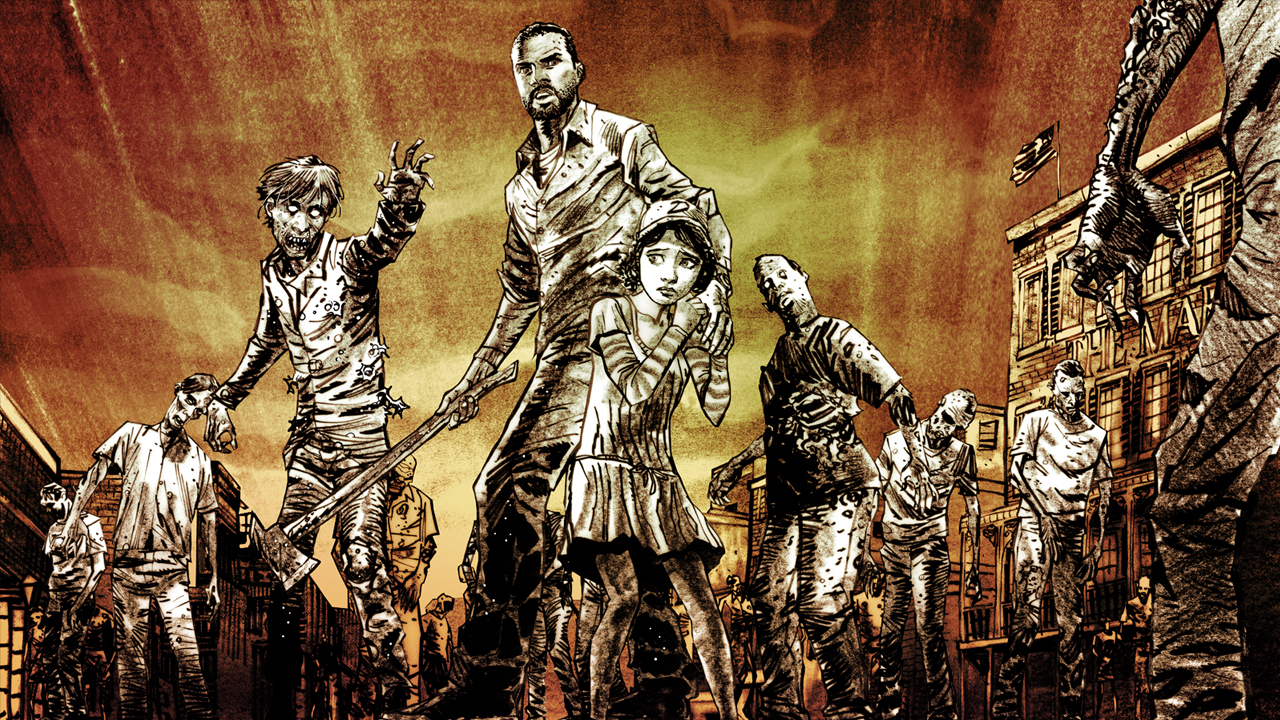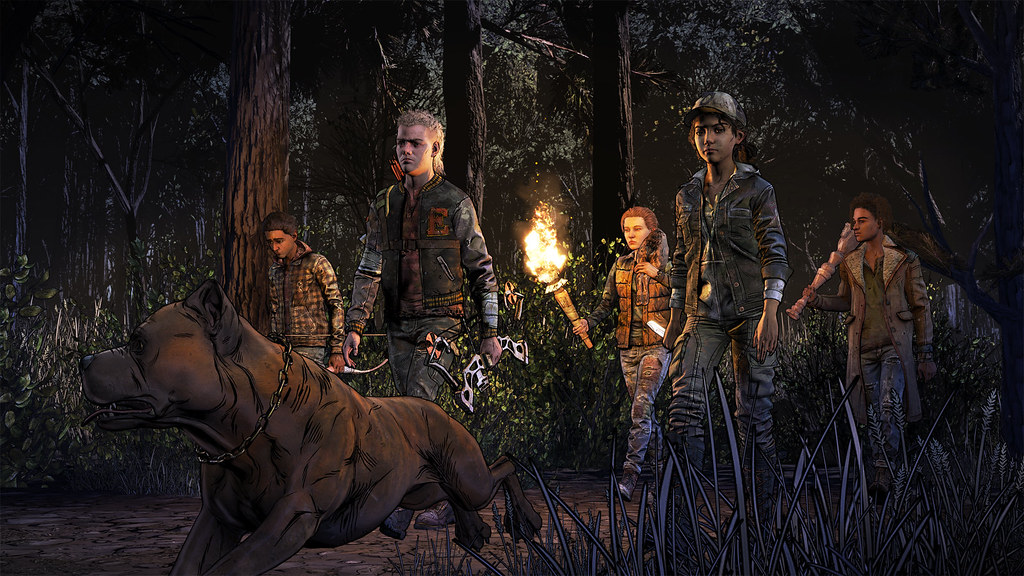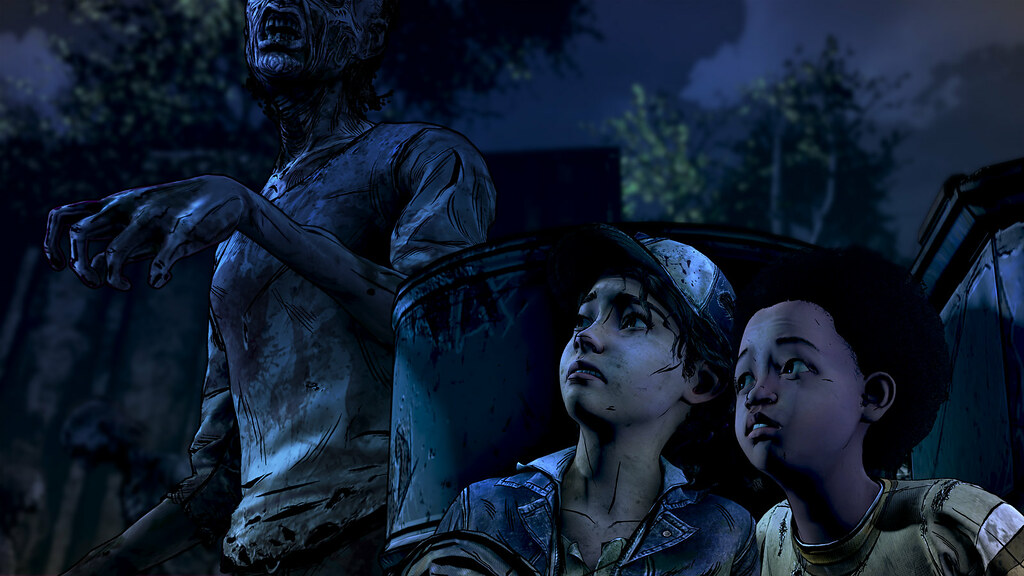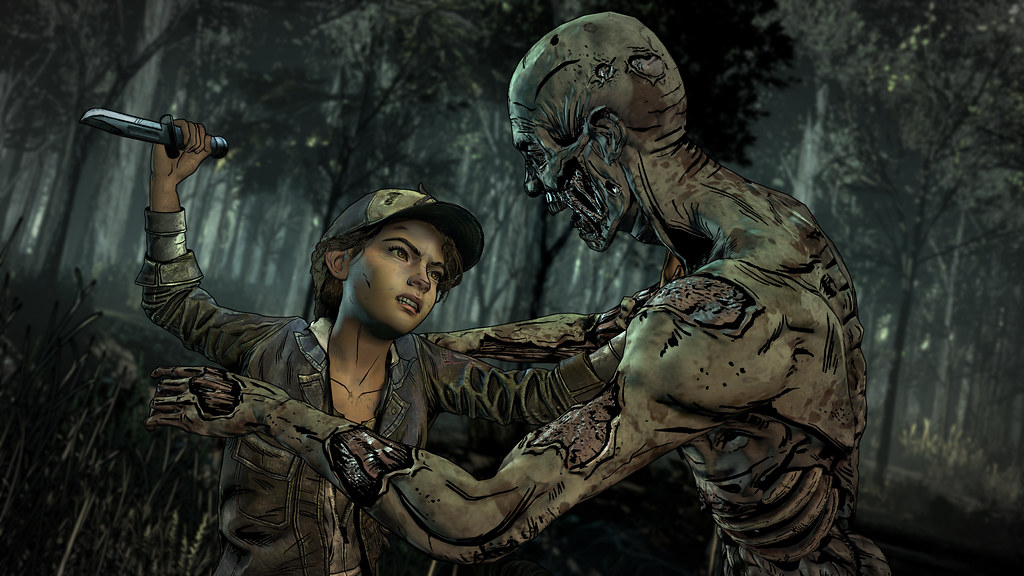Earlier today, Telltale Games launched The Walking Dead: The Final Season Story Builder, an interactive, browser-based experience that allows you to relive the series’ most impactful choice moments. Your choices in the Story Builder produce a unique version of Clementine which can then be imported into the game itself, in place of a save file. In honour of the Story Builder, season lead writer James Windeler decided to look back at Clem’s most formative moments and explain how the final chapter in Clementine’s story first took shape.
When we first met Clem all those years ago, she was a sweet eight-year-old girl talking to us over her walkie-talkie. Though she’s introduced to us as the epitome of innocence, she’s clearly smart as well, taking refuge in her treehouse where walkers can’t reach her. She’s also brave enough to come to Lee’s aid with a hammer during a near-fatal fight with her undead babysitter.
Even then, she showed the survival instincts that have kept her alive longer than almost everyone else she’s encountered in the years since. Of course, she was small, alone, and in need of someone to take care of her. And we were there, as Lee, to fill that role.
In The Final Season, Clementine is all grown up. She’s now a hardened, capable survivor who’s been on the road for some years travelling with AJ, an orphaned boy she took charge of at the end of Season Two.
Clementine owed so much to Lee, the team thought the final chapter of her story needed to involve her repaying some of that colossal debt by passing her knowledge on. She started as a tiny, innocent, utterly dependent child. For us, it was natural and inevitable that she come full circle and step into Lee’s shoes.
A new kind of mentor
While we wanted to honour the starting point of Clem’s story, we were determined not to mimic it.
AJ is nothing like Clem when she was little. He’s a child who has known only life in the post-apocalypse, and as a team, we were excited to explore how a kid born in that world would behave.
Strong and dexterous beyond his years, he can forage for food and handle a gun. Dealing with walkers is second nature to him, as is being wary of strangers. In contrast to young Clementine, AJ really needs guidance in the ethical realm more than anywhere else.
The world before the apocalypse, with all its social mores, is a distant memory, and the question is no longer simply “Will we live or not?”, it’s also “What is the right way to live?”
As Clementine makes difficult, sometimes brutal decisions, AJ watches her, forming a fledgling sense of right and wrong.
In our most grandiose moments, the team frames the story as a battle for AJ’s soul. But we also put the player in charge of more child-like aspects of AJ’s growth, like whether or not he should be allowed to use foul language. We know that little, well-behaved Season One Clem would say, “Swear!” But what about adult Clem in the final chapters of her story?
Even though Clem adopts Lee’s role as mentor, she’s very different from him. Whereas Lee’s backstory existed in a world before the apocalypse, Clem’s has been shaped by players over the course of years of hard survival.
In The Final Season, players define her character in the present, roleplaying her as compassionate or dark or sassy, depending on how they see their version of Clem. But they also pick up with a character who has suffered a great deal and learned she can rely on no one but herself.
To me, when she says goodbye to Lee at the end of Season One, Clem also says goodbye to childhood and to dependence on others. Through no fault of his own, Lee abandons her to this hideous world, and she is forced to carry on alone. Later, she loses another dear friend, Kenny, unable to stop his breakdown into madness.
Most of the other adults prove to be unreliable at best and homicidal tyrants at worst, so by the time Clem holds Javi up at gunpoint early on in The Walking Dead: A New Frontier, she’s hardened, violent, and indifferent to the needs of those around her. She’s driven by single-minded obsession to find the one person that won’t let her down: little baby AJ.
The long road home
For the concluding season of Clem’s story, we really wanted to move her character forward from what might be described as the bitterly angry adolescence of A New Frontier and explore what fully-grown Clem might want. Though the search for AJ once offered a powerful engine for her character, we wanted to move away from that as a goal.
To that end, we had Clem find AJ in the gap between seasons, leaving their reunion as a traumatic memory to be touched on during The Final Season. And since Clementine had been running for a very long time, it felt right that she’d be exhausted, at the end of her rope, and looking for somewhere to finally call home.
As we thought about what that home might look like, the team became convinced it should feel different from all the other communities Clem has seen fail.
Ericson’s Boarding School for Troubled Youth is distinct in that there are no adults in sight. The teenagers that live there — though they’ve survived this long — are relatively sheltered, and when crisis threatens their idyll, they look to Clem for answers.
Time and again through the series, Clementine has been a child or an outsider in a harsh adult world. In her final chapter, we wanted to give Clem a chance to define her own home, to fight for it, and to become a leader in her own right.
Episode one of The Walking Dead: The Final Season will be available for download starting 14th August. Pre-order before 14th August and receive The Walking Dead Collection as a free pre-order bonus. Play the first 15 minutes now by downloading the free demo on your PS4.
The post How Telltale tackled the colossal task of concluding Clementine’s journey in The Walking Dead: The Final Season appeared first on PlayStation.Blog.Europe.
from PlayStation.Blog.Europe https://ift.tt/2O2vrXY
via











0 commentaires:
Enregistrer un commentaire